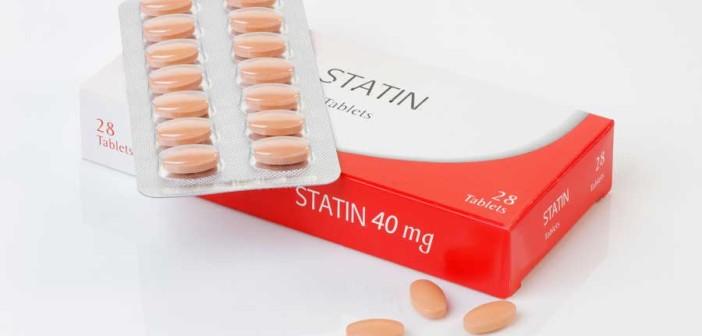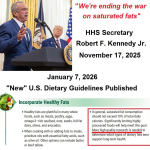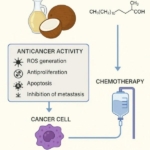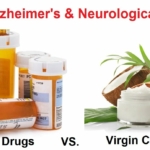by Paul Fassa
Health Impact News
The pharmaceutical empire strikes back. After the recent few years of increasing “statin deniers” getting an occasional mainstream media appearance, vested interest parties are coming up with studies to “prove” statins (cholesterol-lowering drugs) are safe.
The problem is most folks on the fence, as most are, will be distracted by these studies no matter how biased and without merit they may be. Doctors who know the truth about statins are forced to pick any such statin safety study apart in response in order to straighten out doctors who prescribe statins based on pharmaceutical reps’ presentations and industry biased studies.
One such doctor who is outspokenly critical of statin drugs, Scottish General Practitioner (GP) Malcom Kendrick, M.D., recently focused on a Lancet paper that intended to prove side effects from statin drugs were not only greatly exaggerated, but all in the patients’ heads. According to the paper, patients were suffering from the “nocebo effect,” due to all the rising information regarding statin side effect symptoms publicly reported.
The nature of a nocebo effect is the opposite of a placebo effect, which is a positive medical result based only on suggestion, where the mind influences the body toward healing. The study claims most adverse side effects (ASE) are nocebo effects influenced by all those side effect reports that have been circulating throughout the internet and in published matter such as Dr. Kendrick’s books.
The fact that Dr. Kendrick, author of The Great Cholesterol Con and Doctoring Data: How to sort out medical advice from medical nonsense, was being asked to address this latest paper debunking statin adverse side effects on talk shows in the UK is evidence enough of the seeds of doubt its press releases had begun to germinate.
Challenging the Study’s Nocebo Claims
The recently published Lancet nocebo paper was based on a study published in the Lancet 14 years ago, titled Adverse events associated with unblinded, but not with blinded, statin therapy in the Anglo-Scandinavian Cardiac Outcomes Trial—Lipid-Lowering Arm (ASCOT-LLA): a randomised double-blind placebo-controlled trial and its non-randomised non-blind extension phase.
That is the longest most convoluted study this author has ever witnessed. Dr. Kendrick called it “A virtually impenetrable title which could mean almost anything.” He cites the following paragraph from the study as its main function to put doubt into doctors who have second thoughts about statins:
These analyses illustrate the so-called nocebo effect, with an excess rate of muscle-related AE reports only when patients and their doctors were aware that statin therapy was being used and not when its use was blinded. These results will help assure both physicians and patients that most AEs associated with statins are not causally related to use of the drug and should help counter the adverse effect on public health of exaggerated claims about statin-related side-effects.
Of course any media exposure of this study’s claims helps project doubt into consumers who are considered eligible for statin drug therapy. That eligibility standard is quite low. Almost anyone of middle age seems to be eligible for statin prescriptions regardless of the absence of other high risk factors for impaired heart health.
To further compound the hoax of saturated fats causing high cholesterol, claimed to be the root cause of cardiac diseases and heart attacks, a few doctors were once suggesting handing out statin drugs with fast food items, even putting it in the water supply!
It’s interesting to note that the study published 14 years ago in The Lancet vol 361 April 5th 2003, Pages 1149-1158, only recently became a topic of concern in the UK media because of the newly publicized statin nocebo paper.
In a recent radio discussion, one of the co-authors from that study, Professor Peter Sever, declared that inserts warning of statin drug related adverse effects should be removed from the packaging to avoid the nocebo effect, adding that less than one out of ten thousand experience actual muscle problems from statin drugs while saving thousands of lives annually.
Such a statement is total junk science, and doctored evidence promoting a dangerous drug, asserts Dr. Kendrick. And for whose benefit? Well, even though the original study claimed to be independent, it was funded by Pfizer, Servier Research Group, and Leo Laboratories. Pfizer is the creator of Lipitor, one of the earliest statin “blockbuster” drugs with sales averaging almost $13 billion a year until its patent ran out.
Dr. Kendrick discovered the recent nocebo paper’s lead author based on that earlier study, Ajay Gupta, was provided with financial support from the Foundation for Circulatory Health, which is a pharmaceutical front group for the following companies: Pfizer; Sanofi-Aventis; Menarini; Novartis; Medtronic; Boston Scientific; and Pulsecor.
Yes, there’s Pfizer yet again. And Peter Sever and Neil Poulter, both co-authors of the nocebo paper, are directors of the Foundation for Circulatory Health. Quite a circle good ole’ pharma boys. It’s amazing it takes a “statin denier” to see the obvious conflicts of interest that the media reports on face value.
Dr. Malcom Kendrick Fires Back
Dr. Malcom Kendrick posted his rebuttal in The Scotsman newspaper. His article had the same title as one of his books, The Great Statin Con. Dr. Kendrick points out that the study’s actual increase of adverse muscle events among those who knew they were taking statin drugs was merely .26 percent, less than half a percent. Not really a big enough differential to claim the nocebo effect.
Dr. Kendrick quotes another study that appears to be a more truly independent study, The USAGE survey – “Understanding Statin use in America and Gaps in Education, which involved more than 10,000 statin users in the United States.” One of the major statistical items Dr. Kendrick discovered in this study is that 75 percent of statin users quit taking the drug after a year. Why?
More than six in ten respondents (62%) said they discontinued their statin due to side effects, with the secondary factor (17%) being medication cost. Only 12% of respondents cited lack of efficacy in cholesterol management as a reason for stopping their medication. On average, respondents who experienced side effects due to their statin stopped after trying two different statins.
Three out of ten respondents experienced side effects of muscle pain and/or weakness, and 34% stopped taking their statin because of these side effects without consulting with their doctor.
Dr. Kendrick explains that the reality of statin efficacy compared to “saving thousands of lives annually” is almost nonexistent. It doesn’t prevent heart attacks with women, and among men who have had heart attacks, statins offer an average of 4.2 days longer life. Meanwhile, the serious adverse effects probability is so high it makes the reasons given for taking statins as almost completely illogical.
In addition to his analysis of the study and comparisons to other studies, Dr. Kendrick offers his personal and professional experiences of taking patients off statins and watching them recover from torn or ravaged muscles and early onset dementia, among other side effects.
Dr. Kendrick’s father, whose side effects had him wheel chair bound until his doctor-son convinced him to quit taking statins is an example he offered. No nocebo effects had them in such terrible shape that was relieved when they got off statins.
The Statin Scam: People with High Cholesterol Live Longer
It’s well known by medical science that people with high cholesterol readings outlive, without heart health issues, people with low cholesterol readings. The reality is cholesterol is an important building block for hormones, cell walls, and brain and nervous system matter. This explains how statin users get so forgetful and become dementia addled. (See: Statin Scam: People with Higher Cholesterol Live Longer than People with Low Cholesterol)
The mechanics of statins are also understood by those in the medical fields who are not brainwashed by the pharmaceutical industry, as not only decreasing the body’s cholesterol function, but also decreasing the body’s CoQ10 (co-enzyme Q10) production. CoQ10 is a vital co-enzyme for the creation of ATP (adenosine triphosphate) in our cellular mitochondria. ATP is widely considered as the molecule that supports life.
There are more mitochondria needs in heart muscle cells that never rest than any other area of our bodies. So in addition to creating muscle weakness and pain throughout the body and promoting dementia symptoms, heart attack risk is increased by starving the heart of CoQ10.
Regardless of their blockbuster sales, the risk to benefit ratio is as bad as it gets with statin drugs. And the source of coronary and heart disease is not even cholesterol. It’s arterial inner wall inflammation caused by processed foods and excess sugars. It has nothing to do with saturated fats. (Source)
Dr. Kendrick – sources for more information:
https://drmalcolmkendrick.org/2017/05/08/its-official-statins-do-not-have-any-side-effects/
Comment on this article at HealthImpactNews.com.




 HHS Secretary Kennedy Breaks His Promise: "War on Saturated Fat" Kept in Tact with New U.S. Dietary Guidelines
HHS Secretary Kennedy Breaks His Promise: "War on Saturated Fat" Kept in Tact with New U.S. Dietary Guidelines Research Continues to Show Virgin Coconut Oil's Effectiveness in Treating Cancer
Research Continues to Show Virgin Coconut Oil's Effectiveness in Treating Cancer Coconut Oil Continues to Benefit Alzheimer's Patients over Drugs as Studies Continue for Neurological Benefits
Coconut Oil Continues to Benefit Alzheimer's Patients over Drugs as Studies Continue for Neurological Benefits How the Simple High-Fat Low-Carb Ketogenic Diet Continues to Change People's Lives
How the Simple High-Fat Low-Carb Ketogenic Diet Continues to Change People's Lives New Studies Continue to Show that Coconut Oil is the Best Oil for Treating Skin Conditions and Maintaining Healthy Skin and Teeth
New Studies Continue to Show that Coconut Oil is the Best Oil for Treating Skin Conditions and Maintaining Healthy Skin and Teeth